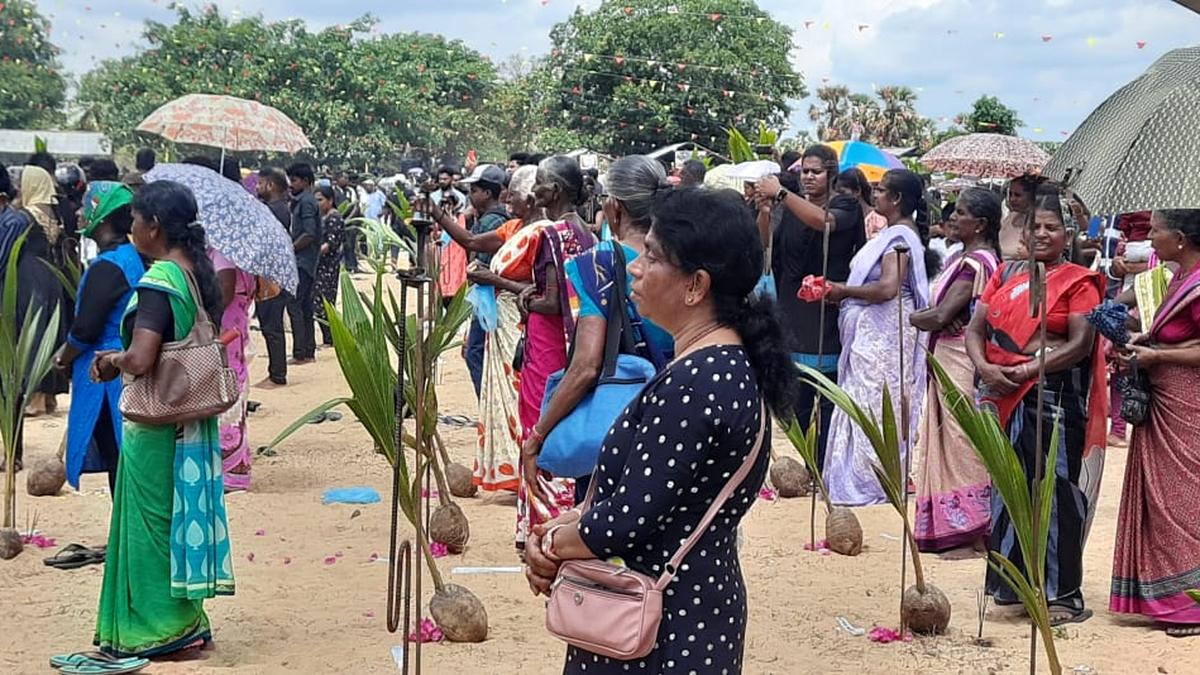
Tamils in Sri Lanka mark 15th anniversary of civil war’s end in Mullivaikkal
The Hindu
Thousands of Tamils on May 17 converged in Mullaivaikkal, along Sri Lanka’s north-eastern coast, to pay homage to their relatives killed in May 2009, in the final battle of the island’s protracted civil war
Thousands of Tamils on May 17 converged in Mullaivaikkal, along Sri Lanka’s north-eastern coast, to pay homage to their relatives killed in May 2009, in the final battle of the island’s protracted civil war.
As the war escalated before its gruesome end, lakhs of Tamil civilians were pushed to this narrow strip of land, declared a ‘No Fire Zone’ by the government. Tens of thousands, including women and children, died in the indiscriminate shelling of the armed forces, while scores were seriously injured.
Families gathered at the venue on Saturday and placed photographs of their loved ones in the sandy ground near the sea, offered prayers with flowers, food, and by lighting lamps. Antony Jesurathnam Mariapushparani, a Mullaitivu resident, has vivid images from May 18, fifteen years ago.
“Only those of us who were here know how many children died, how many senior citizens died. I saw how they just stacked up bodies in tractors and dropped them here,” she said. Pointing to the main road adjacent to the venue, she said, “it was there that we had our last kanji (porridge).”
To recall those desperate times, many Tamils prepare and serve kanji in the run up to May 18, marking the period as ‘Mullivaikkal remembrance week’, or as ‘Tamil Genocide Remembrance Day’ by some. Earlier this week, four Tamils were arrested in the Eastern Province while they were serving kanji, after police obtained a court order citing reasons of “public health” and revival of “terrorist activities”. The three women and a man were granted bail yesterday, amid sharp criticism of the government for “suppressing” Tamils’ right to memorialise.
Fifteen years after the war ended, with allegations of serious violations of human rights and international law, survivors are relentlessly demanding the whereabouts of their missing relatives, among some 60,000 forcibly disappeared persons.
“Sri Lanka’s Government must take meaningful action to determine and disclose the fates and whereabouts of tens of thousands of people who have been subjected to enforced disappearance over the decades and hold those responsible to account,” a UN Human Rights Office report released this week said. Further, it called on the Sri Lankan government to acknowledge “the involvement of State security forces and affiliated paramilitary groups, and to issue a public apology.”

U.S. President Donald Trump threatens 200% tariff on wine, champagne from France, other EU countries
Trump threatens 200% tariffs on European alcohol in response to EU levies, sparking trade tensions and market uncertainty.












